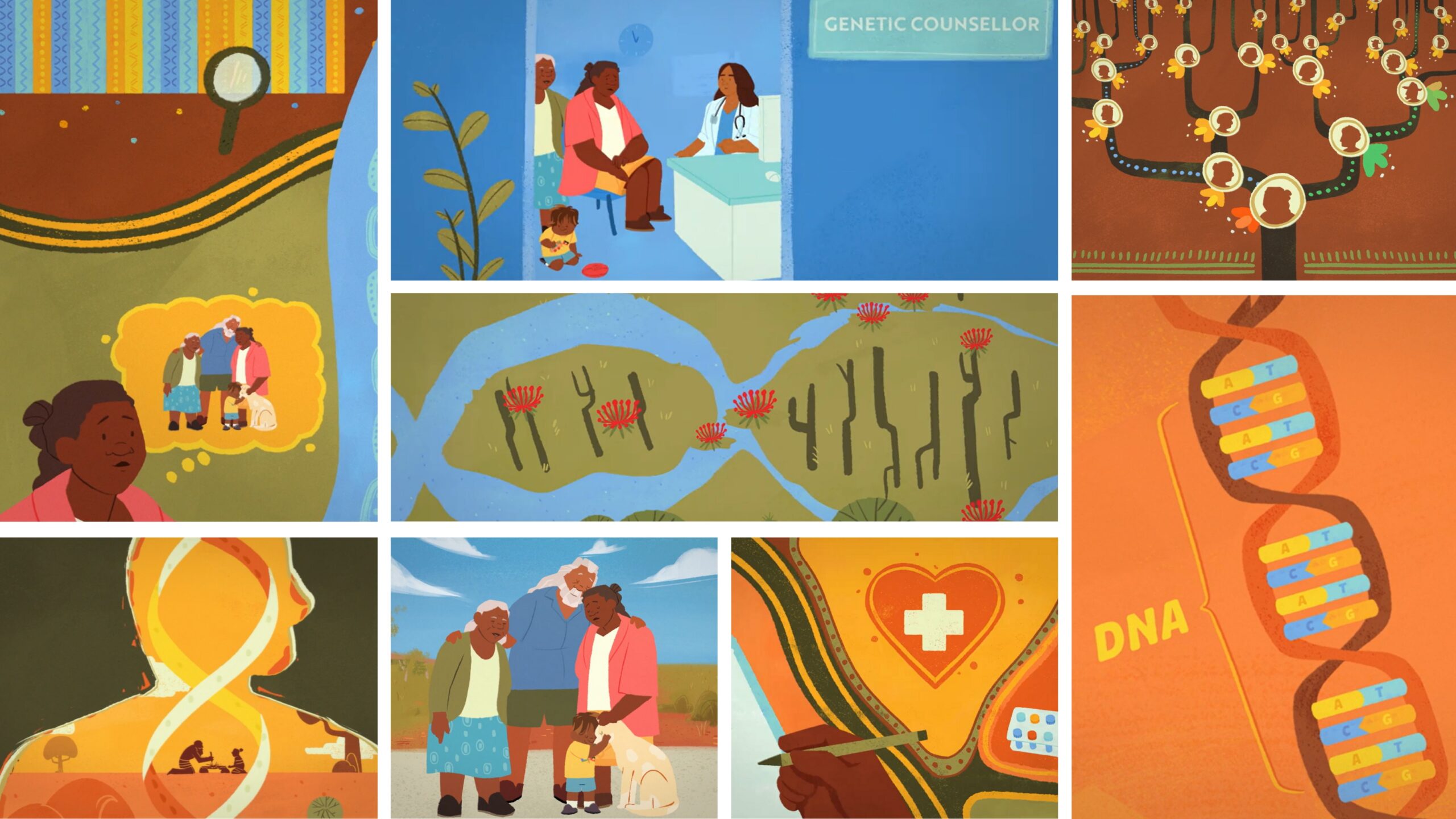
Longstanding calls from Aboriginal and Torres Strait Islander communities for culturally grounded information about genetics and genomics has led to a ground-breaking suite of resources from the National Centre for Indigenous Genomics (NCIG) at the Australian National University.
Launched recently by NCIG and supported by Australian Genomics the materials will help people seeking to understand genetic conditions, genetic testing and genomics research, and to navigate the sometimes-complex pathways to these.
Their release comes amid heightened awareness internationally of the need to improve equity of access to the benefits of genetics and genomics, particularly for First Nations peoples.
“We’ve been working with Aboriginal communities for the last 10 years, and in that time we’ve seen a steady increase in the number of First Nations people being referred to or wanting to access genetic and genomic health services,” said NCIG Deputy Director, Associate Professor Azure Hermes.
“But many community members have told us there are no culturally appropriate resources that explain what these services are, how they can help, or what to expect.”
The resources include storytelling through animations, plain language definitions, interviews with genetic counsellors, a map of genetic services nationally and other materials that reflect community voice, values and knowledge. They will be translated into five Indigenous languages.
Australian Genomics Managing Director Tiffany Boughtwood said the materials had enormous potential to support more equitable and culturally safe genomics research and clinical care in Australia.
“These resources address a clear need identified by Aboriginal and Torres Strait Islander communities. They will support First Nations families navigate genomic healthcare, strengthen the confidence of health workers, and improve genomic engagement and understanding of Indigenous and non-Indigenous peoples alike” she said.
NCIG worked closely with community organisations across Australia throughout the project – Building Knowledge of Genomics in Partnership – which comprised three key stages: listening, co-designing and sharing.
Early collaborative workshops laid the foundation for the project, creating space for communities, researchers, health workers and creative teams to come together and begin the co-design process. These early conversations highlighted the need for clear and timely information, the value of visual storytelling, and the importance of moving beyond just pamphlets and posters.
Five partner communities across three states are shaping the design and delivery of the work. They include the Victorian Aboriginal Community Controlled Health Organisation (VACCHO); Gurriny Yealamucka Health Service, Yarrabah (Queensland); Yalu Aboriginal Corporation, Galiwin’ku (Northern Territory); the Machado Joseph Disease Foundation, from Groote Eylandt (supporting work across the Northern Territory and Queensland); and members of a genomic advisory group from the Tiwi Islands.
The project team is also co-designing a learning module to support local health workers and community champions working at the interface of genomics and community.
Associate Professor Hermes said while the resources had been developed for Aboriginal and Torres Strait Islander people, they would also be useful for genetic health service staff and the wider Australian community.

